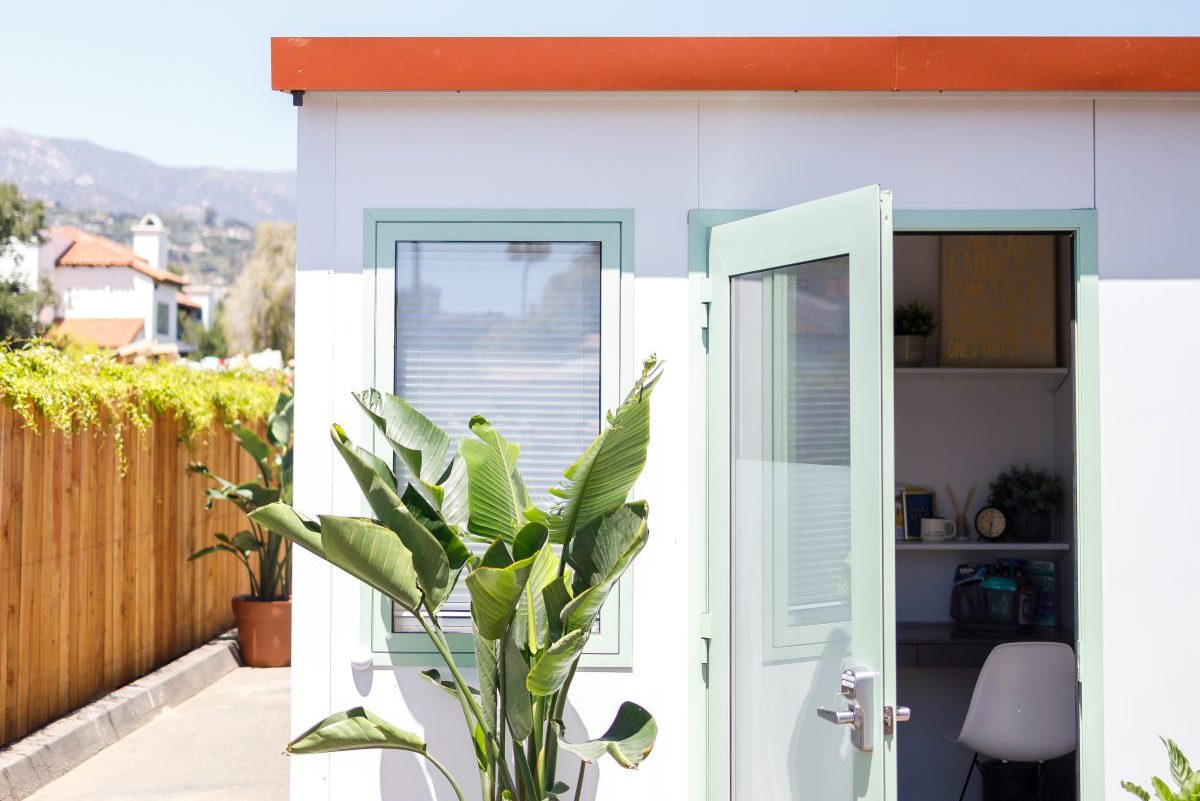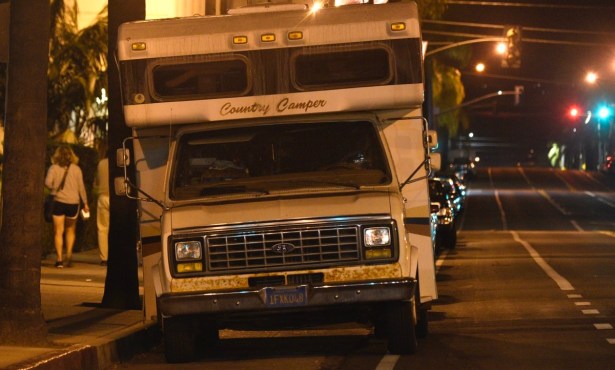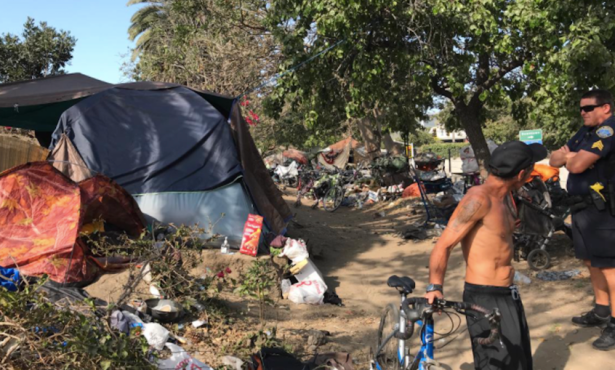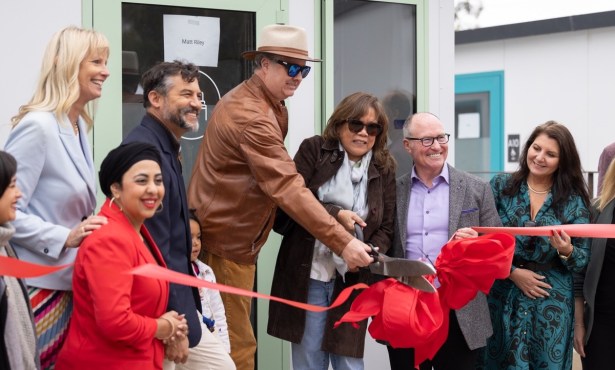DignityMoves Celebrates First Year of Tiny-Home Operations in Downtown Santa Barbara
Public-Private Experiment Has Led to Permanent Housing for 15 Formerly Homeless Individuals

Over the past year, 66 otherwise chronically homeless individuals have managed to call the DignityMoves pop-up village in downtown Santa Barbara home. Of those, 34 are currently residing in the 34 prefabricated tiny homes or “cabins” that were packed tightly onto the site of the former government parking lot at 1016 Santa Barbara Street. There they enjoy the comforts of interim housing, which in this case involves a bed, air-conditioning, a desk, windows, and, most critically, a door they can close and lock.
This is all part of a new public-private experiment involving the County of Santa Barbara, DignityMoves, and the Good Samaritan shelter in addressing chronic homelessness by giving the most vulnerable a place where, for 6-12 months, they have their own space coupled with on-site access to mental-health counseling, substance-abuse treatment providers, and medical practitioners. Unlike at traditional shelters, DignityMoves residents don’t have to share their space with anyone, though partners and pets are allowed. The thinking is that many people who need help will refuse to enter a group shelter setting.
Half the residents have been unhoused for more than 10 years. Nearly half are 55 years old or more. Fifteen have since found permanent housing, four have reunited with their families or found other interim housing, and another eight have located permanent housing but have not sealed the deal yet.
Nine have been asked to leave for health and safety reasons. Another seven individuals had been approved but declined to move in.
Of the residents, 74 percent reported mental-health disorders and 48 percent have been connected with treatment; 43 individuals reported substance-abuse issues, and 23 have been connected to services.
Another 85 individuals have been screened and approved but are on the waiting list as new vacancies open up.
The DignityMoves project made a point to target people living in the downtown area already. Anecdotally, the presence of obviously frail and acutely troubled people on the streets of downtown has subsided since the tiny-home village opened a year ago on August 10. The model has been the subject of much interest, and the property has been the focus of 40 tours.
DignityMoves, the county, and Good Samaritan are currently in the process of developing another similar village, La Posada, near the intersection of Hollister Avenue and Modoc Road; there, up to 90 cabins will be built. In addition, another village with 94 cabins is slated for Santa Maria. Operating costs are $1.03 million, and it cost $1.6 million to develop. Of that, $950,000 came from private philanthropy and $750,000 from state funding.
In addition, the City Housing Authority is about to open up the Vera Cruz apartments by Vera Cruz Park later this month, which will provide 29 permanent housing units to people otherwise on the streets. Likewise, a former Super 8 Motel located by Hollister and Fairview in Goleta will soon be opening its doors as Buena Tierra, also permanent housing for people who have been chronically homeless.
The big takeaway, according to Kimberlee Albers, the county’s coordinator of homeless services, is “more elbow room, and more space for pets, recreation, and clinical space.”
According to Barbara Andersen, the City Hall administrator most in charge of homeless response projects, there have been no complaints about homeless people congregating in front of the DignityMoves site. A private security company is on call 24/7 and prevents that from happening, and curfews and conduct rules are strictly enforced inside.



